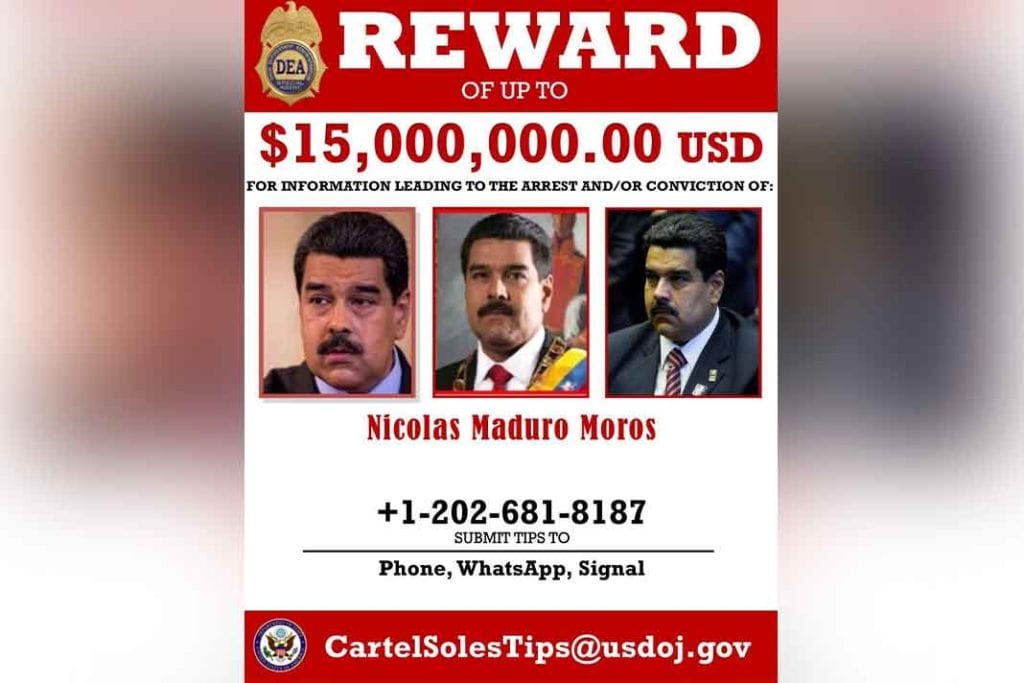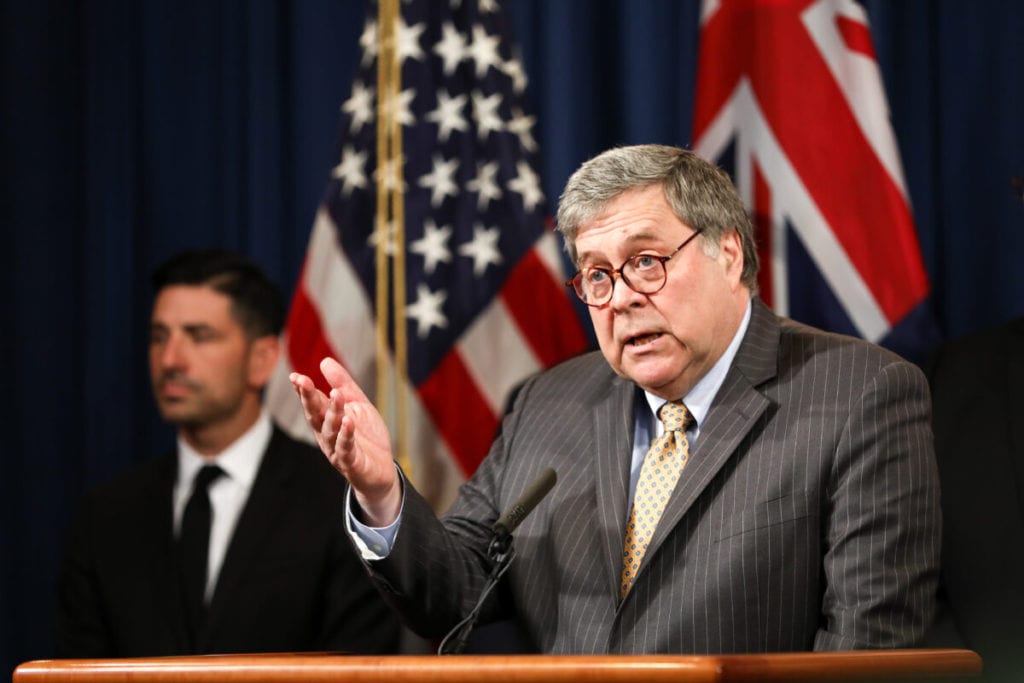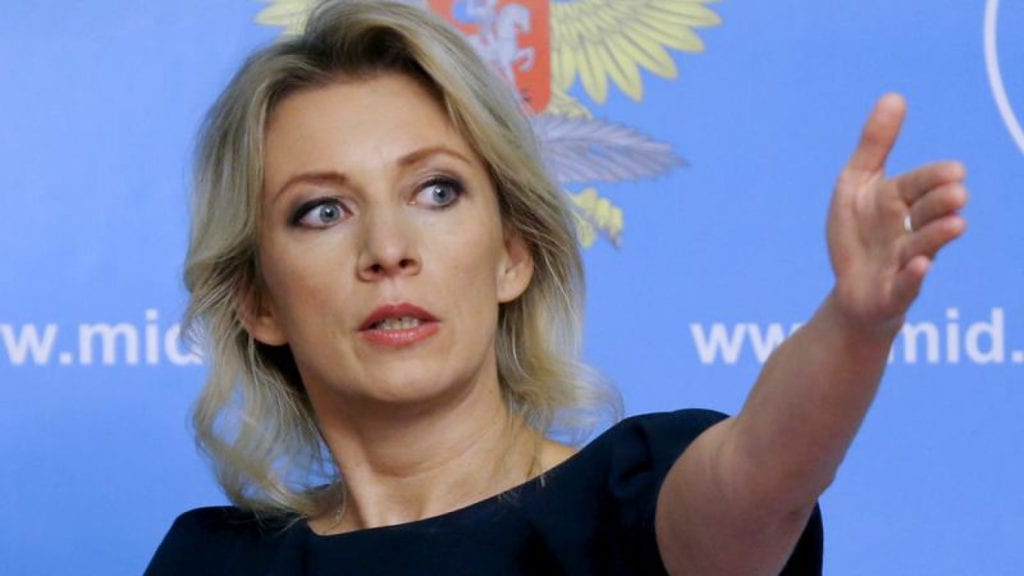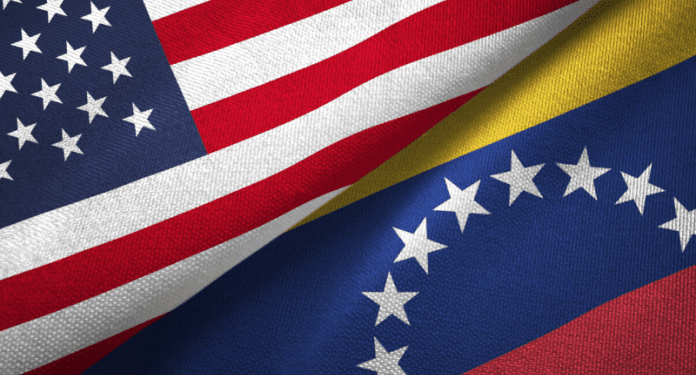On March 26, the White House accused Venezuelan President Nicolas Maduro of drug smuggling. In turn, the US Department of Justice has also indicted other senior officials in the country, including the chairman of the Supreme Court and the Secretary of Defense of the Latin American country. How does politics unfold during the pandemic era? And what threatens the constitutional government of Venezuela?
Despite the raging pandemic of the “COVID-19” virus, the US Presidential Administration, Donald Trump, continues to “clean up” the Latin American region. After the Venezuelan oil industry suffered from the sanctions of Washington and the price war between Russia and Saudi Arabia, on March 26, the Venezuelan government was faced with new White House attacks.
According to official statements by the Secretary of Justice William Barr, the US authorities are offering $ 15 million for information that will help in the arrest of Nicolas Maduro (Spanish – Nicolás Maduro Moros). Earlier, the US Secretary of State Mike Pompeo (Michael Richard “Mike” Pompeo) said that the US authorities have appointed a reward for information that will lead to the “arrest and/or conviction” of the Venezuelan president. Pompeo noted that the agency will also give out $ 10 million for information about other representatives of the authorities of the Bolivarian Republic. The leader of Venezuela has been repeatedly accused of corruption and the severity of the regime, however, Maduro himself denies the allegations.

The White House continues to support the country’s opposition leader Juan Guaidó (Spanish – Juan Gerardo Guaidó Márquez), who declared himself acting president early last year. Turning to the history of the issue, it is worth recalling that Nicolas Maduro won the presidential elections in April 2013 with a slight advantage after the death of his predecessor and mentor Hugo Chavez. In May 2018, he was re-elected for a second term, although international observers said the elections were in violation. Over the past few years, Venezuela continues to experience a severe economic crisis. In 2019, inflation amounted to 800 thousand percent, and about 4.8 million people left the country. In January 2019, the leader of opposition Juan Guaido declared himself acting president, which was recognized by more than 50 countries. However, power in Venezuela is still held by Nicolas Maduro, on whose side the army is, and he is also supported by a number of countries such as China, Cuba, Russia and Turkey.
In January of this year, Washington introduced a “new package” of sanctions against the Venezuelan state oil corporation “PDVSA”, banning the US companies from buying oil from it. The U.S. Department of State, in its official statement, said that Venezuelan people deserve a transparent, responsible, representative government that will serve the needs of people, and will not participate in the illegal smuggling of drugs. At a March 26 press conference, William Barr said that people in power in this Latin American country have not lived up to the confidence of the people by trafficking drugs from Venezuela, which includes control of planes flying from a state air base. According to Barra, Nicolas Maduro collaborates with the Colombian extremist group FARC (Spanish – Fuerzas Armadas Revolucionarias de Colombia – Ejército del Pueblo, FARC-EP) in order to “flood the United States with cocaine”. According to William Barr, the Colombian militants received support from the Maduro regime, which allows them to safely be in Venezuela, from where they can freely and with impunity smuggle cocaine.

The U.S. Attorney Geoffrey Berman (Geoffrey Steven Berma) also accused the Venezuelan government of having links with the FARC and emphasized in a statement that Nicolas Maduro deliberately used cocaine as a weapon to undermine U.S. citizens’ health and well-being. In addition, Berman has accused Maduro’s associates of drug-terrorist collaboration with the left-wing radical extremist group of Colombia over the past 20 years.
At the moment, the current Venezuelan leader rejects the accusations of the White House, and already called them false. Maduro previously accused the United States and Colombia of conspiring against Venezuela and inciting violence in the country. Maduro is convinced that Washington wants to remove him in order to gain access to the country’s oil reserves. The Venezuelan Foreign Minister Jorge Arreaza (Spanish – Jorge Alberto Arreaza Monserrat) also said that the US policy to change power in Venezuela is “doomed to failure”, and the announcement of the award for information on the leader of the Bolivarian Republic of Nicolas Maduro is a very desperate step by Washington. According to Arreaza, “to offer a reward, as racist cowboys did in the Wild West, testifies to the desperation of the Washington elite and their obsession with Venezuela”.

Moscow has already called absurd the attempts of the radical opposition to provoke new demonstrations in Venezuela, where, according to the official representative of the Russian Foreign Ministry, Maria Zakharova, progress is evident in the development of the national dialogue. Speaking about the situation in the Latin American country, she recalled that “in this state there is progress in the activities of the so-called round table of national dialogue”. According to her, the activities of this structure “support the majority of the population of this country”.
Maria Zakharova said that the Russian side believes that the time has come for the opponents of Caracas to recognize objective reality: in Venezuela there is only one head of state – this is the President Nicolas Maduro. “A compromise solution is possible only through a national dialogue that is beginning to bring concrete results”. Zakharova reaffirmed Russia’s readiness to assist the intra-Venezuelan negotiations in the form and volume in which it will be claimed by the parties.
In the era of the rapid spread of the coronavirus, Washington’s accusations of the Venezuelan President Nicolas Maduro of involvement in the drug trade are certainly politically motivated, and the possible invasion of this Latin American country, according to many experts, could be a disaster for the entire region. Could Nicolas Maduro be able to restrain the pressure of the United States and to lose his power mandate, it will be shown in the very near future. However, the White House will also have to change its strategy in the Latin American region, at least during the fight against a dangerous pandemic.


